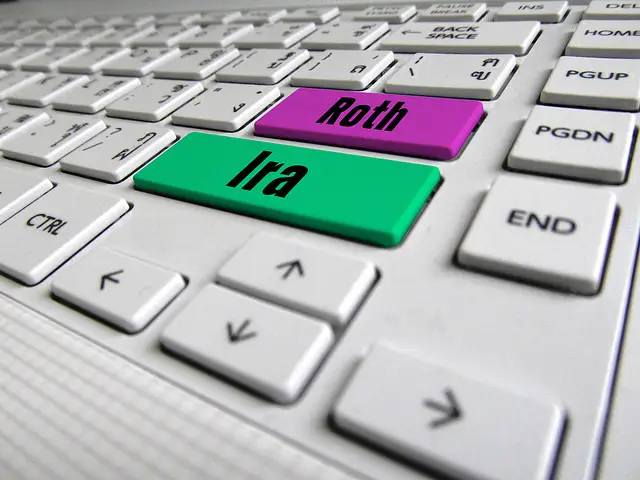 Are you trying to decide whether or not you should be building your retirement savings with a Roth IRA?
Are you trying to decide whether or not you should be building your retirement savings with a Roth IRA?
It’s true; using a Roth IRA has its advantages — but there are also more than a few reasons that may make you think twice before getting one. Here are seven of them:
There’s no income tax deduction
According to Hans Scheil, a certified financial planner and owner of Cardinal Retirement Planning, “The biggest drawback to a Roth IRA is the lack of a tax deduction. Then again, that isn’t so bad if you already have lots of other deductions, or a small amount of taxes.”
Rules and restrictions still apply
Just as with a traditional IRA, a person must have earned income in order to make a contribution, and the same maximum contribution limits also apply. You can withdraw contributions you made to your Roth IRA anytime, tax- and penalty-free. But earnings that are pulled out before you’re older than 59.5 years old may be subject to taxes and/or a 10% penalty – so you have to be careful and review all of the rules, restrictions, and exceptions before doing so.
If you earn too much, you could be exempt from participating
Many people with six-figure incomes can’t contribute to a Roth IRA. This year, that includes single folks who earn in excess of $144,000 and married folks filing jointly with a combined income in excess or $214,000.
You’re limited on how much you can contribute
As of 2022, you can contribute $6000 annually to your Roth – and those who are 50 or older can contribute an extra $1000 per year.
It’s not efficient when it comes to foreign dividends
Roth IRAs aren’t very efficient when it comes to foreign dividends.
“Foreign companies usually deduct tax from the dividend before sending it to American shareholders to ensure that their own government gets the taxes due,” explains Lyn Alden, founder of Lyn Alden Investment Strategy. “Foreign governments, except for Canada, don’t care if you hold your stocks in a retirement account. So, if you have foreign stocks in a Roth, you end up paying foreign dividend taxes on what should have been tax-free investments.”
She adds, “You also have to be careful about putting Master Limited Partnerships (MLPs) inside of a Roth IRA. If your MLPs generate more than $1000 worth of unrelated business taxable income, you’ll have to pay taxes on that income even though the investments are in your Roth.”
The tax “advantage” is all in how you look at it
Roth IRAs are commonly touted as superior because they accumulate earnings tax-free. However, this is something of a misnomer, according to Rob Drury, executive director of the Association of Christian Financial Advisors.
“Contrary to common belief, there is not necessarily a tax advantage in choosing a Roth IRA over a traditional IRA,” he says. “Given identical tax rates during contribution and withdrawal phases, it’s a wash either way.”
Self-employed people aren’t likely to benefit
Due to the income limits, Roth IRAs aren’t designed for self-employed people with very high incomes. In that scenario, a SEP IRA is often a better choice.
The Bottom Line
It’s up to you to determine if you’re willing to risk losing tax deductions now, in order to save money in the future. However, no matter what you decide, the most important thing is that you’re saving at all — which already puts you ahead in the game.
Photo Credit: investmentzen

In a financial crisis or if future tax revenue becomes too tight there is nothing stopping the US gov’t from taxing Roth IRA withdrawals at a later date.
Or just taking them (along with all the tax deferred versions) altogether, and hand you a govt bond in exchange. That idea has floated around for couple decades, and when their back is against the wall, it might just come to pass.
Yet another reason to hold your retirement funds in precious metals….harder for them to take.
It they’re physical precious metals, then the only way the government is going to get them is with a treasure map.
With a traditional IRA you can’t withdraw ANY money before age 59 1/9 without paying the penalty and taxes. The ROTH gives you the flexibility to withdraw the contributions without a penalty which is superior to the regular IRA. OF COURSE YOU SHOULD NEVER WITHDRAW ANYTHING FROM YOUR RETIREMENT ACCOUNT BEFORE YOU RETIRE!
Per IRS:
You generally have to start taking withdrawals from your IRA, SEP IRA, SIMPLE IRA, or retirement plan account when you reach age 72.
Roth IRAs do not require withdrawals until after the death of the owner.
Social Security is now considered taxable income, and if you take it early, retirement account withdrawals can affect how much Social Security you’ll lose before you reach retirement age. If I withdraw money from my ROTH IRA, it does not affect my Social Security in any way.
Tell that to all the people doing Roth conversions now.